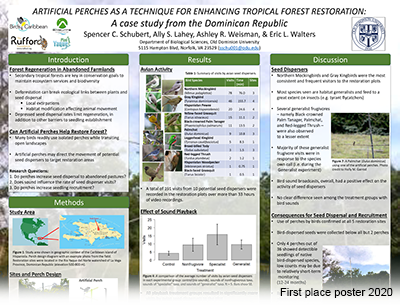College
Strome College of Business
Program
Ph.D. Public Administration and Policy - School of Public Service
Publication Date
Spring 2020
DOI
10.25883/8wm8-hs47
Abstract
Emergency management continues to ignite policy discussions globally. With the growing impacts of climate change, pandemics, and the international political economy (IPE), more resources are invested in emergency resilience. Researchers in the Hampton Roads area underscore the growing need for emergency management strategies, especially considering the recurrence of natural disasters in the area. To that end, seminars, workshops, and conferences are held annually to convene key stakeholders on this subject. Simultaneously, there is rapid growth in global technological innovations that aim at bolstering countries’ resiliency thrust. These technological innovations gave rise to the 21st-century buzzword ‘e-resilience’. E-resilience involves the use of technology in advancing emergency management. The United Nations continues to promote the e-resilience thrust, highlighting the significant role technology plays in preparing for, responding to, and recovering from emergencies. Whether through cellular phone applications, geographic information systems (GIS), data-free services, or satellite imageries, technology is value-added in times of emergency. The main purpose of this study will be to unearth feasible technological tools to bolster emergency management in the Hampton Roads area. Furthermore, to decipher the collaborations and non-technological components needed for e-resilience. A phenomenology methodology will be adopted, underpinned by the social constructivist research paradigm. Data will be collected through elite interviews, focus group discussions, and secondary data review. The researcher will aim at documenting the perception of policy experts on e-resilience, based on their lived experiences and expert knowledge in emergency management. As is evidenced by the ongoing coronavirus pandemic, researches into the technological facets of emergency management are pivotal. The findings from this study will be significant for both theory and practice in emergency management, and for the wider public policy and government spheres.
Keywords
E-Resilience, Disaster management, Hampton Roads, Technology
Disciplines
Emergency and Disaster Management | Science and Technology Studies
Files
Download Full Text (336 KB)
Recommended Citation
Blake, Ren-Neasha Royanna, "Bolstering Emergency Management with Technological Tools: Opportunities for 'E-Resilience' Collaborations in Hampton Roads" (2020). College of Business (Strome) Posters. 2.
https://digitalcommons.odu.edu/gradposters2020_business/2



